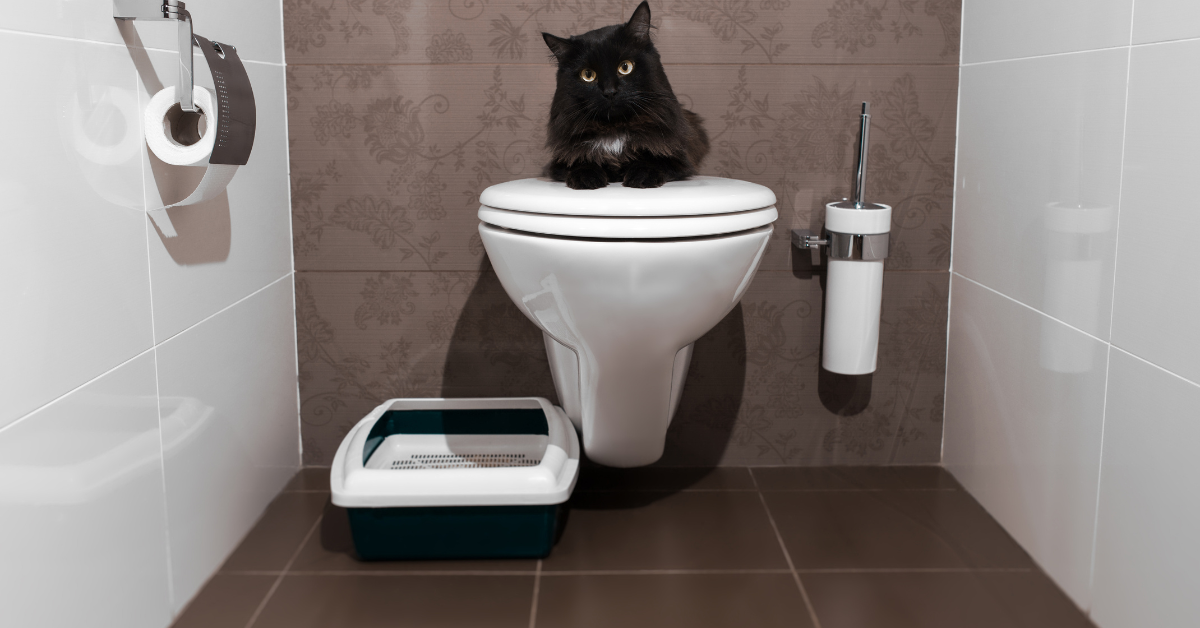The Consequences of Flushing Cat Poop Down Your Toilet - Protect Your Pipes
The Consequences of Flushing Cat Poop Down Your Toilet - Protect Your Pipes
Blog Article
Are you currently interested in related information on How to Dispose of Cat Poop and Litter Without Plastic Bags?

Intro
As cat proprietors, it's important to bear in mind exactly how we deal with our feline good friends' waste. While it may seem convenient to flush feline poop down the toilet, this practice can have damaging consequences for both the atmosphere and human wellness.
Ecological Impact
Flushing pet cat poop introduces dangerous pathogens and parasites right into the water supply, posing a significant risk to marine ecosystems. These pollutants can adversely influence marine life and compromise water top quality.
Health and wellness Risks
Along with environmental problems, flushing pet cat waste can additionally posture wellness dangers to humans. Pet cat feces may include Toxoplasma gondii, a bloodsucker that can trigger toxoplasmosis-- a possibly serious disease, specifically for expecting females and individuals with damaged immune systems.
Alternatives to Flushing
The good news is, there are much safer and extra accountable ways to dispose of feline poop. Take into consideration the following choices:
1. Scoop and Dispose in Trash
The most typical technique of dealing with feline poop is to scoop it into a naturally degradable bag and throw it in the trash. Be sure to make use of a committed clutter scoop and dispose of the waste without delay.
2. Use Biodegradable Litter
Opt for naturally degradable cat clutter made from materials such as corn or wheat. These clutters are environmentally friendly and can be securely gotten rid of in the trash.
3. Hide in the Yard
If you have a yard, think about hiding feline waste in a marked area away from vegetable yards and water sources. Make certain to dig deep sufficient to prevent contamination of groundwater.
4. Mount a Pet Waste Disposal System
Buy an animal waste disposal system specifically developed for feline waste. These systems utilize enzymes to break down the waste, minimizing smell and ecological impact.
Conclusion
Responsible pet possession prolongs past providing food and shelter-- it additionally involves proper waste monitoring. By avoiding purging pet cat poop down the bathroom and opting for alternative disposal methods, we can decrease our ecological impact and secure human wellness.
Why You Should Never Flush Cat Poop Down the Toilet
A rose by any other name might smell as sweet, but not all poop is created equal. Toilets, and our sewage systems, are designed for human excrement, not animal waste. It might seem like it couldn’t hurt to toss cat feces into the loo, but it’s not a good idea to flush cat poop in the toilet.
First and foremost, assuming your cat uses a litter box, any waste is going to have litter on it. And even the smallest amount of litter can wreak havoc on plumbing.
Over time, small amounts build up, filling up your septic system. Most litter sold today is clumping; it is made from a type of clay that hardens when it gets wet. Ever tried to scrape old clumps from the bottom of a litter box? You know just how cement-hard it can get!
Now imagine just a small clump of that stuck in your pipes. A simple de-clogger like Drano isn’t going to cut it. And that means it’s going to cost you big time to fix it.
Parasitic Contamination
Believe it or not, your healthy kitty may be harboring a nasty parasite. Only cats excrete Toxoplasma in their feces. Yet it rarely causes serious health issues in the cats that are infected. Most people will be fine too if infected. Only pregnant women and people with compromised immune systems are at risk. (If you’ve ever heard how women who are expecting are excused from litter cleaning duty, Toxoplasma is why.)
But other animals may have a problem if infected with the parasite. And human water treatment systems aren’t designed to handle it. As a result, the systems don’t remove the parasite before discharging wastewater into local waterways. Fish, shellfish, and other marine life — otters in particular — are susceptible to toxoplasma. If exposed, most will end up with brain damage and many will die.
Depending on the species of fish, they may end up on someone’s fish hook and, ultimately on someone’s dinner plate. If that someone has a chronic illness, they’re at risk.
Skip the Toilet Training
We know there are folks out there who like to toilet train their cats. And we give them props, it takes a lot of work. But thanks to the toxoplasma, it’s not a good idea.

We had been made aware of that editorial about Don’t flush cat feces down the toilet through a good friend on another site. In case you enjoyed reading our page please remember to pass it around. Thanks a lot for your time. Visit us again soon.
Call Today Report this page